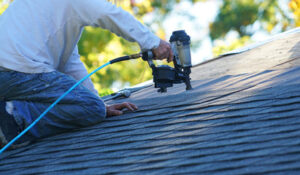Plumbing is the system of pipes and fixtures that distributes water and removes waste in residential, commercial, and industrial facilities. Plumbers install, maintain, and repair these essential systems to ensure safe and efficient operations.

Plumbers work in a variety of settings and must be able to read blueprints to interpret building plans and specifications. They also collaborate with other professionals to ensure plumbing systems integrate seamlessly into building projects and meet regulations and standards. Visit https://www.plumbing-express.com/ to learn more.
The installation of plumbing fixtures and fittings is a complex process that requires a great deal of skill. Plumbers must be able to work with a variety of materials and tools in tight spaces, and they must follow all local codes and regulations. Whether installing new fixtures or making repairs, plumbers must be able to identify problems and make sure they are fixed correctly.
A plumbing fixture is any device that supplies water or removes waste, including sinks, showers, toilets, and bath units. These devices provide essential sanitary functions in residential and commercial buildings. They can be installed in a wide range of settings, from kitchens and bathrooms to basements and attics. In addition to pipes, plumbing fixtures can include faucets, showerheads, and valves.
Plumbing systems are made up of pipes that carry fresh, clean water to and from fixtures. They also include drains that carry wastewater and sewage away from these fixtures. This system is essential for the health and safety of building occupants, and plumbers are responsible for installing, maintaining, and repairing these pipes.
To install a plumbing fixture, plumbers must first prepare the area and shut off the water supply. They then mark the positions for the pipes and cut them to size. Next, they connect the pipes using cement and primer, and then seal them with pipe joints and adhesives. Plumbers must be careful to avoid cross-connections, which could lead to contaminated water. Finally, they must test and inspect the plumbing fixture to ensure that it is working properly.
A poorly installed plumbing fixture can cause a number of issues, from leaks and floods to disease-causing pathogens. To protect your home or business from these dangers, it’s important to hire a skilled, licensed plumber for all of your installation and maintenance needs. In addition to ensuring that your plumbing system is up to code, a professional plumber can also help you save money by fixing leaks and installing energy-efficient fixtures.
Maintenance
Keeping plumbing systems in good condition is an important aspect of homeownership and prevents costly repairs or water damage. Homeowners can take several steps to keep their plumbing working properly, such as regularly cleaning drains, testing shut-off valves, and addressing leaks promptly. But sometimes even the best-maintained plumbing systems require professional intervention to address serious issues. Plumbers can help homeowners maintain the health and value of their properties by identifying warning signs, such as gurgling sounds or foul odors, and repairing or replacing pipes, fixtures, and appliances when necessary.
Plumbing systems are complex, and many components work together to provide safe, clean water and waste disposal. But these systems are vulnerable to a variety of problems, from mineral build-up and low water pressure to clogs and leaks. These problems can occur anywhere in a house, but are most common in kitchens and bathrooms. Plumbers can repair most plumbing issues, but when they cannot, they may need to replace entire parts of a system.
Installing new plumbing systems involves bringing in piping, fittings, and appliances and connecting them to existing lines. This requires knowledge of building codes and blueprints to ensure that everything is installed properly and safely. Plumbers also need to understand how different materials such as steel, copper, and PVC affect water flow and piping integrity.
Leaking pipes, clogs, and other issues can lead to wasted water and higher utility bills. Plumbing maintenance can identify and repair these problems, reducing water usage and saving money. For example, detecting and repairing leaks quickly can save up to 1 trillion gallons of water annually in the United States. In addition, maintaining proper water pressure helps fixtures and appliances last longer and reduces wear and tear on pipes.
A well-maintained plumbing system also promotes healthier living by eliminating sanitary conditions and improving air quality. For instance, regularly cleaning drains and avoiding putting items down the toilet that shouldn’t be there can prevent clogs and improve water flow. It is also important to educate everyone in a household about the proper use of plumbing systems, including how to shut off water mains in case of an emergency and what not to flush down drains (e.g., sanitary products, cotton swabs, plastic, and hair).
Repair
Plumbers repair or replace a wide range of plumbing fixtures and fittings, including sinks, bathtubs, toilets, showers, faucets, drains, water heaters, water filters, and more. These professionals are skilled in troubleshooting and can diagnose issues such as leaks, clogs, and poor water pressure. They also know how to install and repair energy-efficient appliances and pipes, so you can save money on your utility bills.
Leaks are one of the most common plumbing problems, and plumbers can fix them quickly and efficiently. They can use a variety of techniques, including pipe cutting, patching, and sealing. Some plumbers even offer emergency services to address urgent situations. Before making any repairs, make sure the water supply is turned off and that any affected areas are dry. You can use a towel or sponge to absorb any excess moisture.
If a pipe is severely damaged, it may need to be replaced. This is typically done with a trenchless technique that involves removing the existing pipe and installing a new one without disrupting the surrounding area. Plumbers will often use modern materials that are durable and resistant to corrosion, such as PEX or PVC.
Many homeowners have water filtration systems to improve the quality of their home’s water. When these systems break down or experience issues, such as a change in water pressure or an imbalance in the pH level, a plumber can fix them. They will first assess the situation to determine if it is a simple issue or a bigger problem, then recommend the necessary steps to resolve it.
A plumber can help prevent serious issues from arising by conducting regular inspections of a home’s plumbing system. This allows them to spot problems in their early stages and take the appropriate measures before they become severe. It also helps ensure that all aspects of a plumbing system are working as they should, preventing water damage, health hazards, and environmental pollution. In addition to examining the structure of pipes and water heaters, plumbers can also check for cross connections, which refers to any connection between the clean and dirty water plumbing systems that can cause contamination.


